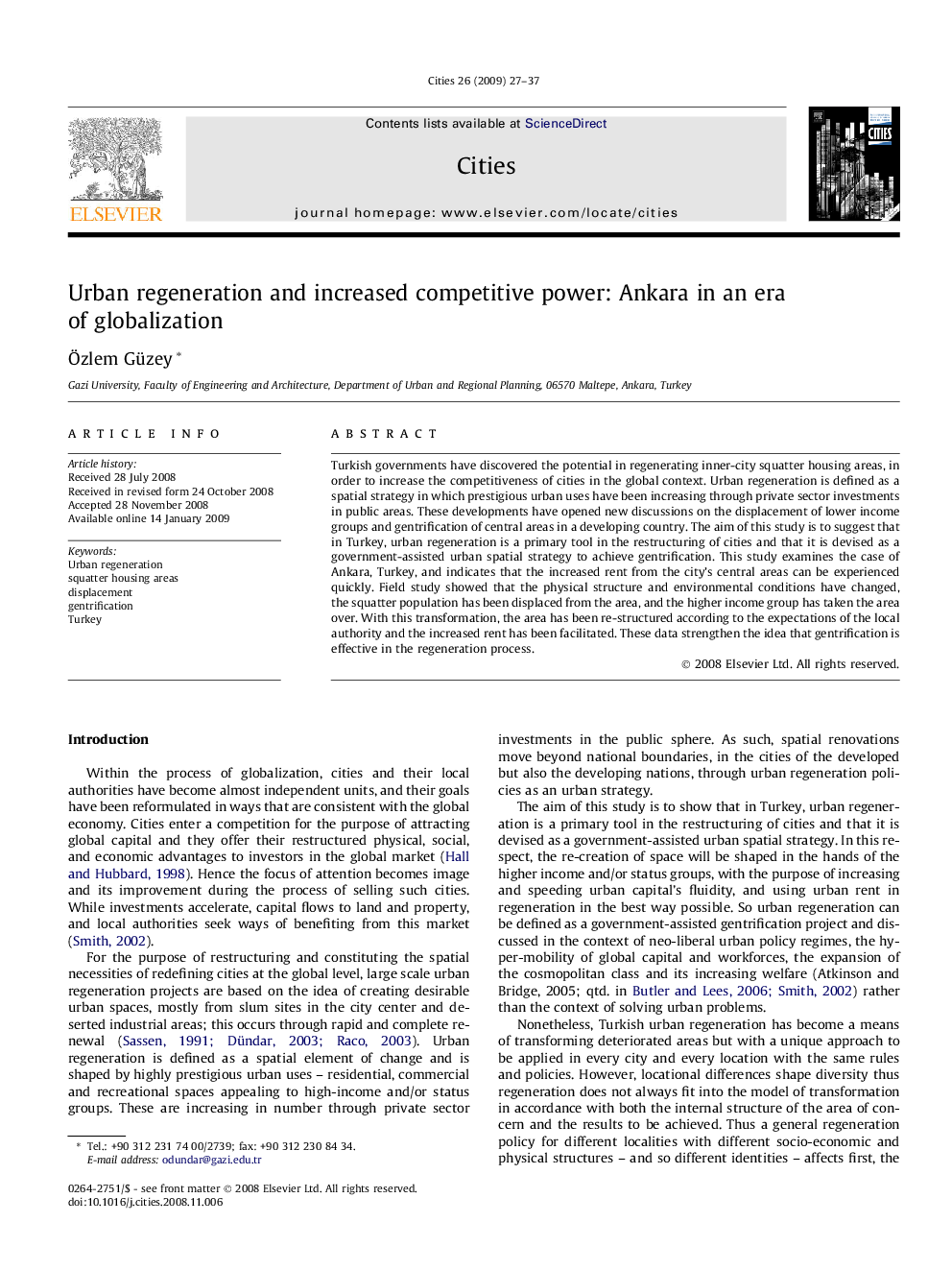| Article ID | Journal | Published Year | Pages | File Type |
|---|---|---|---|---|
| 1008881 | Cities | 2009 | 11 Pages |
Turkish governments have discovered the potential in regenerating inner-city squatter housing areas, in order to increase the competitiveness of cities in the global context. Urban regeneration is defined as a spatial strategy in which prestigious urban uses have been increasing through private sector investments in public areas. These developments have opened new discussions on the displacement of lower income groups and gentrification of central areas in a developing country. The aim of this study is to suggest that in Turkey, urban regeneration is a primary tool in the restructuring of cities and that it is devised as a government-assisted urban spatial strategy to achieve gentrification. This study examines the case of Ankara, Turkey, and indicates that the increased rent from the city’s central areas can be experienced quickly. Field study showed that the physical structure and environmental conditions have changed, the squatter population has been displaced from the area, and the higher income group has taken the area over. With this transformation, the area has been re-structured according to the expectations of the local authority and the increased rent has been facilitated. These data strengthen the idea that gentrification is effective in the regeneration process.
